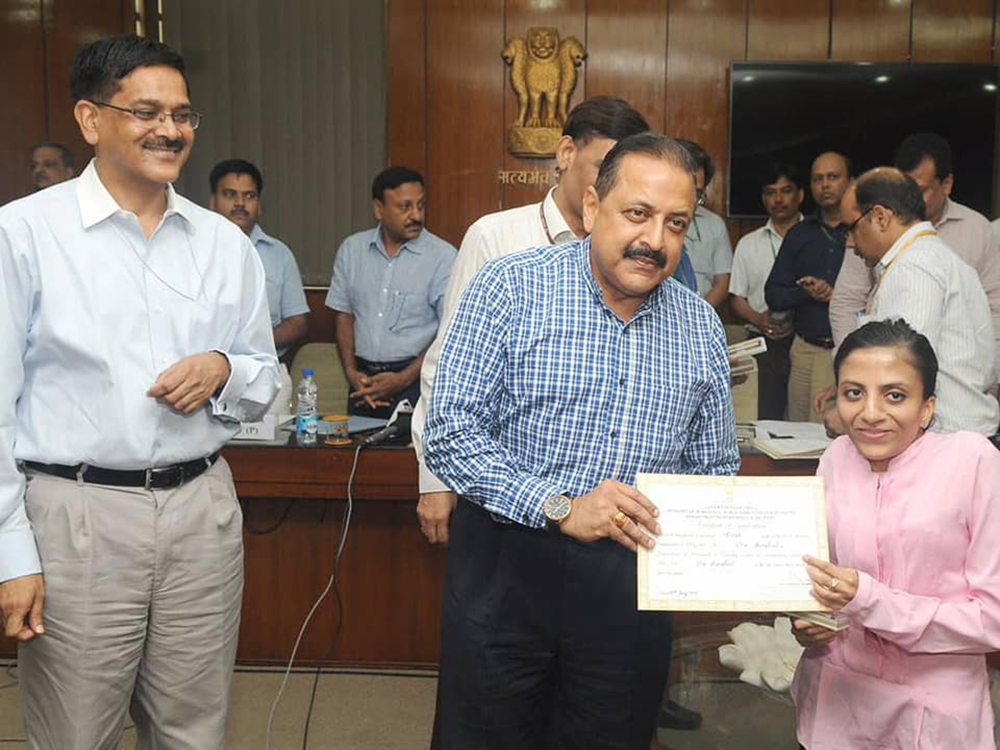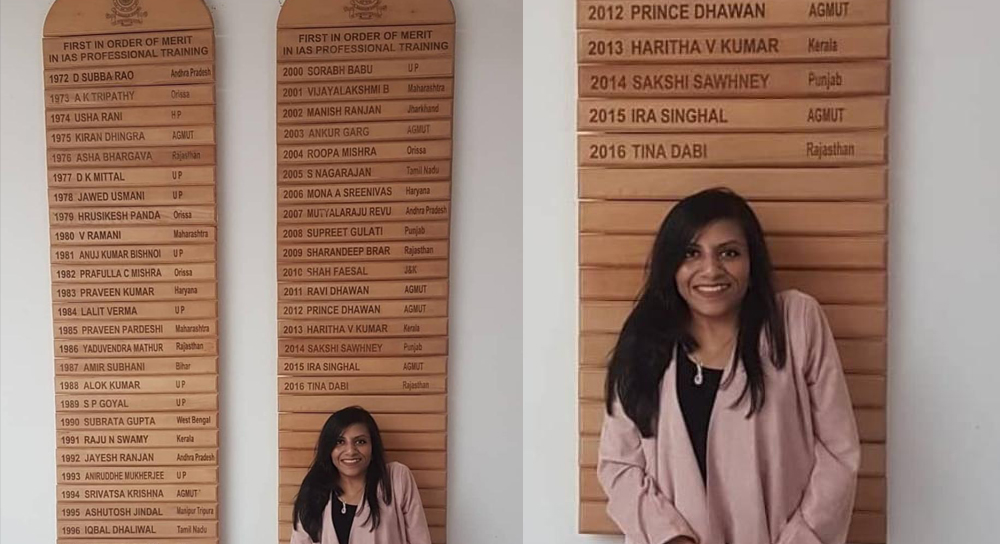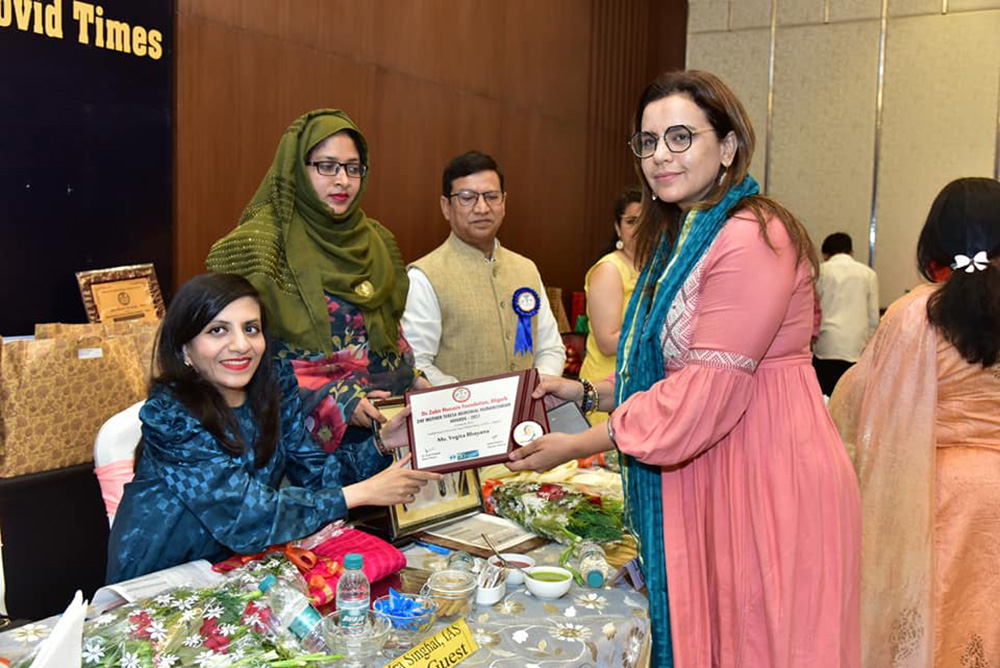“Can you, right now, get up and go climb Mount Everest? Or perform ballet?” Ira Singhal asked, during our exclusive interview with her, stumping this interviewer immediately. I admitted that I cannot do either. “So, aren’t you differently abled compare d to those who can?” Once again, I had to admit she was right.
“Except for maybe breathing, and eating, and normal bodily functions, all of us are different, and we can’t all do the same things. All of us have some abilities and some disabilities,” she remarked. “It’s just a matter of how well we use our abilities, and how well we work on ourselves. In comparison to someone else, you will always have different abilities, which makes you differently abled as well as special.”
This Disability Pride Month, we share Ira Singhal’s inspiring story, and her thoughts on how to create a more inclusive world. Whether you are wholly unaware of the needs of the disabled, or someone who believes they are allies and advocates for the community, a conversation with this Indian Administrative Services (IAS) officer and achiever was a learning experience for me and will be equally rewarding for you.
As you can easily guess, chatting with this Indian Administrative Services (IAS) officer and achiever was a learning experience indeed. Whether you are wholly unaware of the needs of the disabled, or someone who believes they are allies and advocates for the community, our conversation with Singhal will be equally rewarding for you. So, t his Disability Pride Month, we share her inspiring story, and her thoughts on how to create a more inclusive world.

Scoliosis, school and the making of an IAS officer
The disability Singhal has is called scoliosis, in which the spine has a sideways curvature, limiting arm movements among other things. A disability of any kind can often be isolating. Singhal, however, says she experienced an inclusive school environment, which shaped her outlook as well as that of others around her. “I went to a regular school, and I don’t think any of my classmates ever realised that I have a disability,” she explains. “It was just that I look like this, beyond that it never hit them as a thought that they need to pity me, or they need to treat me differently. This shows that if you’ve grown up with someone, you’ve naturally normalised them, unless someone comes and keeps telling you that ‘they’re different’.
Though Singhal herself says her career trajectory is quite normal for urban settings, you may find the fact that she studied engineering, did an MBA, and worked a full-time corporate job before giving the UPSC exams a go, quite unique. But it was a lack of emotional satisfaction that helped Singhal make such a switch. “There was a point in my corporate career when I was working 20-hour days, and I started feeling that at the end of my day, there’s nobody who’s going to say that because I worked so hard, their life is a little better,” she says.
But Singhal’s story isn’t as clear-cut as that of many other civil services aspirants. In fact, she cleared the UPSC exams four times—in 2010, 2011, 2013 and 2014. “I was rejected in my first three attempts, basis my disability,” Singhal reveals. “They said that with my disability, no service was ready to take me except for the IAS—and I didn’t get a rank good enough for IAS. I had gone to court, and I did win the case, and I did get a job with the Indian Revenue Services (IRS) because of that. But I wanted to do something where the hands-on work was a lot more, which is something you get to do in the IAS.”
And so, Singhal kept trying until in 2014, she topped the UPSC exams, not only getting cleared for the IAS, but also becoming the first disabled woman to do so.

How schooling needs to change
Since her appointment and posting as an IAS officer in Delhi, Singhal has made disability awareness one of her key areas of work. Making schools more inclusive is one target she actively tries to achieve. She suggests that it’s more about the willingness and awareness of the teachers that matters here. Through training programmes in her zone, Singhal has been able to explain to teachers that they don’t really have to do anything different to make classrooms more inclusive—changing their perceptions about disability can often be enough.
Singhal says futher adds, that an introductory training for teachers, and slowly removing that bias from their minds, will go a long way. With virtual classrooms emerging across the country, the playing field for children with disabilities has levelled a bit. But, she reminds us that “disability is also a factor of poverty in India.” The access to devices required for these online classrooms are very limited. “Until we can provide all children with a device on which they can learn from home, it’s a little tough,” she says. She also points out that schools go beyond textual learning, and social learning is equally vital because that helps you adjust in the world around.
An area she feels very strongly about is sign language. “Sign language needs to become the third compulsory language for all,” she says, adding that not all of us end up using all the languages we learn in school, in everyday life. But learning sign language can not only help you, but also those around with hearing disabilities. “But sign language is something that you will end up using,” she insists. “It’s really sad right now that children with hearing disabilities can only speak to other children with hearing disability, because even their family members, parents, siblings, don’t know sign language. A language is supposed to help you communicate with the world. We’re teaching our children with hearing disabilities sign language, but we’re not teaching it to the rest of the world.”

Enabling the disabled and marginalised
Singhal also highlights that the employment sector needs to rethink its outlook vis-à-vis people with disabilities. “Now if you’re a person with a disability, with one thing that you can’t do well, there is obviously going to be something that you CAN do well,” she explains. “What normally happens is that we keep focusing on what a person can’t do, and stop looking at the things they can. And that’s how we take away the opportunities that person could have had.”
She insists that people with disabilities can perform better, even outshine others, when it comes to certain job profiles. “For example, people with hearing disabilities work extremely well on shop floors where there is so much noise that in regular circumstances, people with hearing ability actually go through trauma and mental health issues,” she explains. “But a person with hearing disability is perfectly fit for it. Similarly, you have desk jobs with repetitive tasks, which people from the autism spectrum can do really well. So, it’s really about focusing on what their abilities are instead of focusing on what their limitations or disabilities are.”
The same logic, she says, applies to marginalised communities. As the first person to give employment to transgender people in government offices, Singhal’s take here is straight-forward and highly inclusive—obviously stemming from her own experiences. Instead of putting her two transgender employees at the back of the office, Singhal hired them to work out front, in the reception. “The SDM office in your jurisdiction is the only place where you can get certain documents made, and you don’t have an alternative to that,” she explains. “So, if you want any work done, you’ll have to go there, and you’ll have to be nice to people at the reception and windows.”
Interacting with people every day not only made it easier for the locals to get awareness and acceptance about the transgender community, but also changed the equation Singhal’s transgender employees had with the world. “The world that they used to go begging to, was now coming to them for help,” she explains, adding that these are the conscious types of changes we all can introduce in our everyday lives to make the world more inclusive for all.